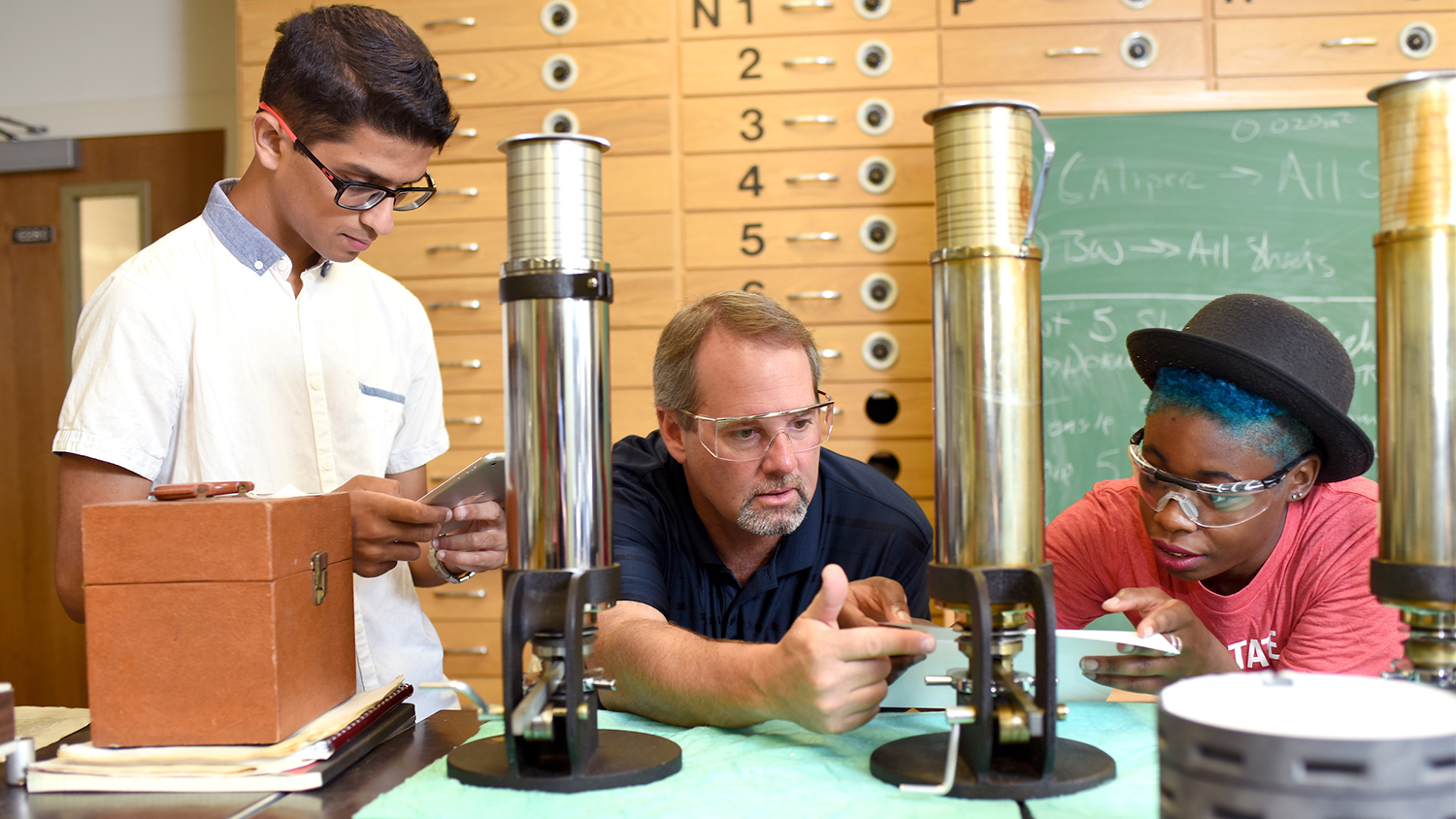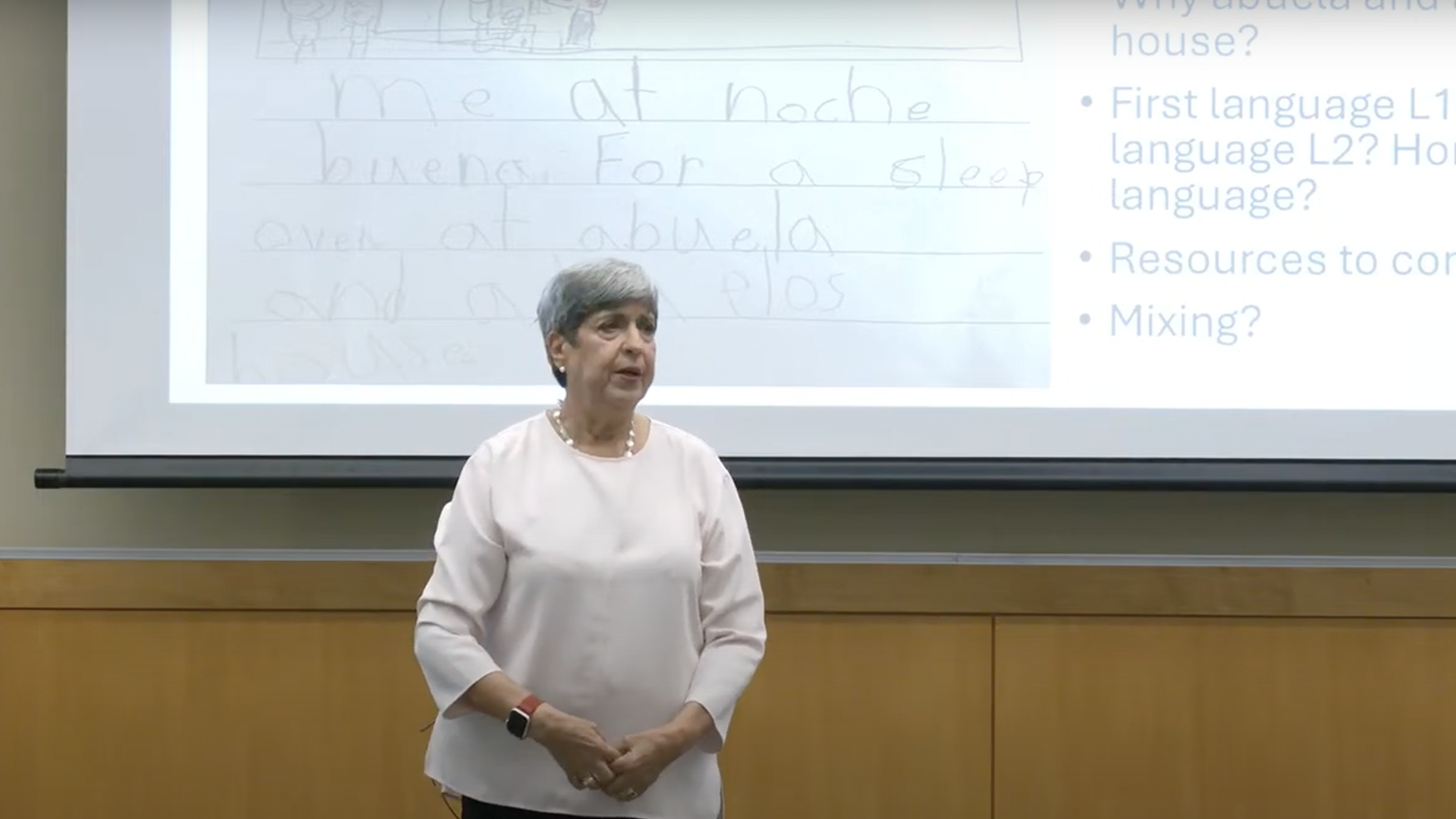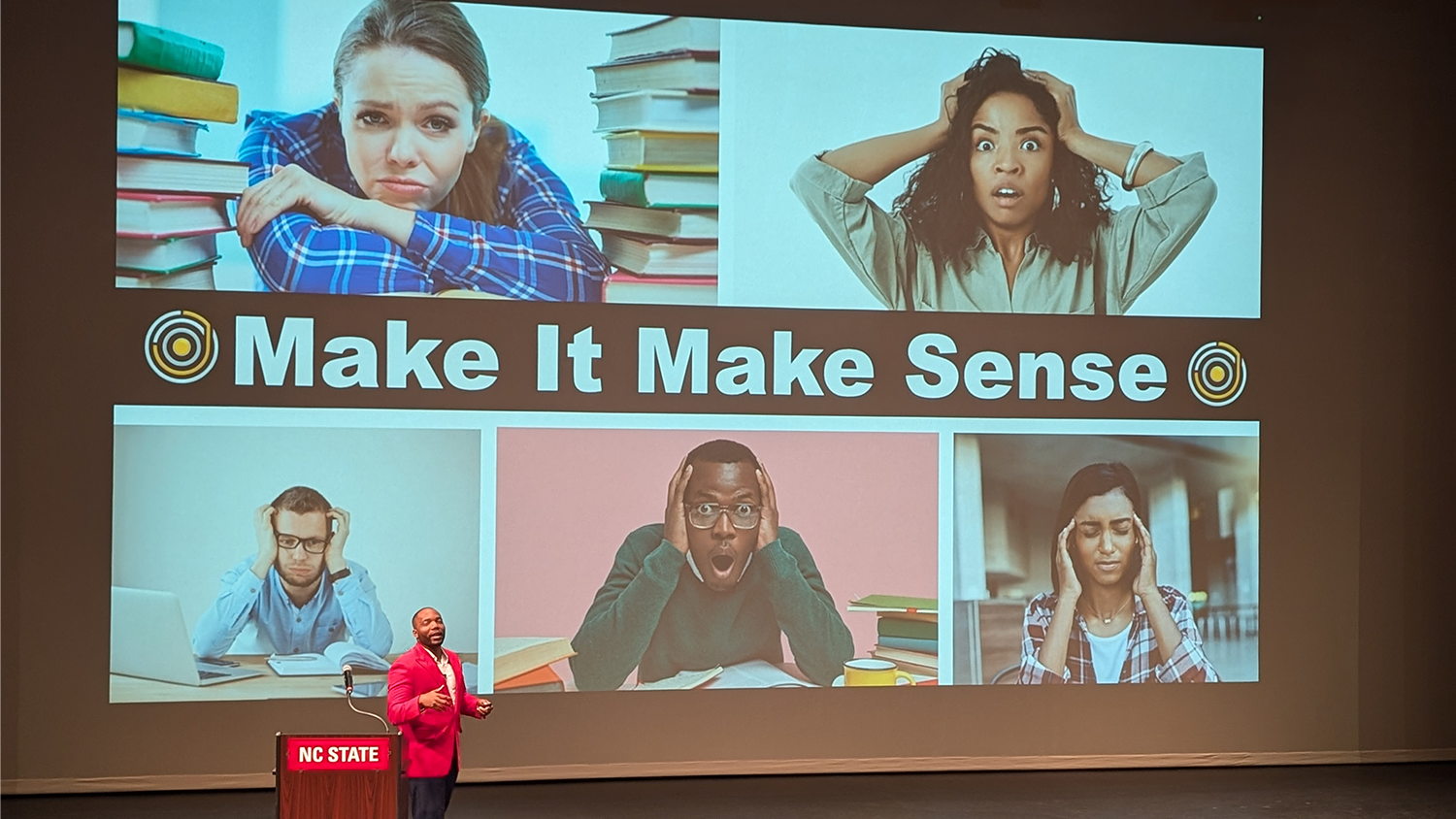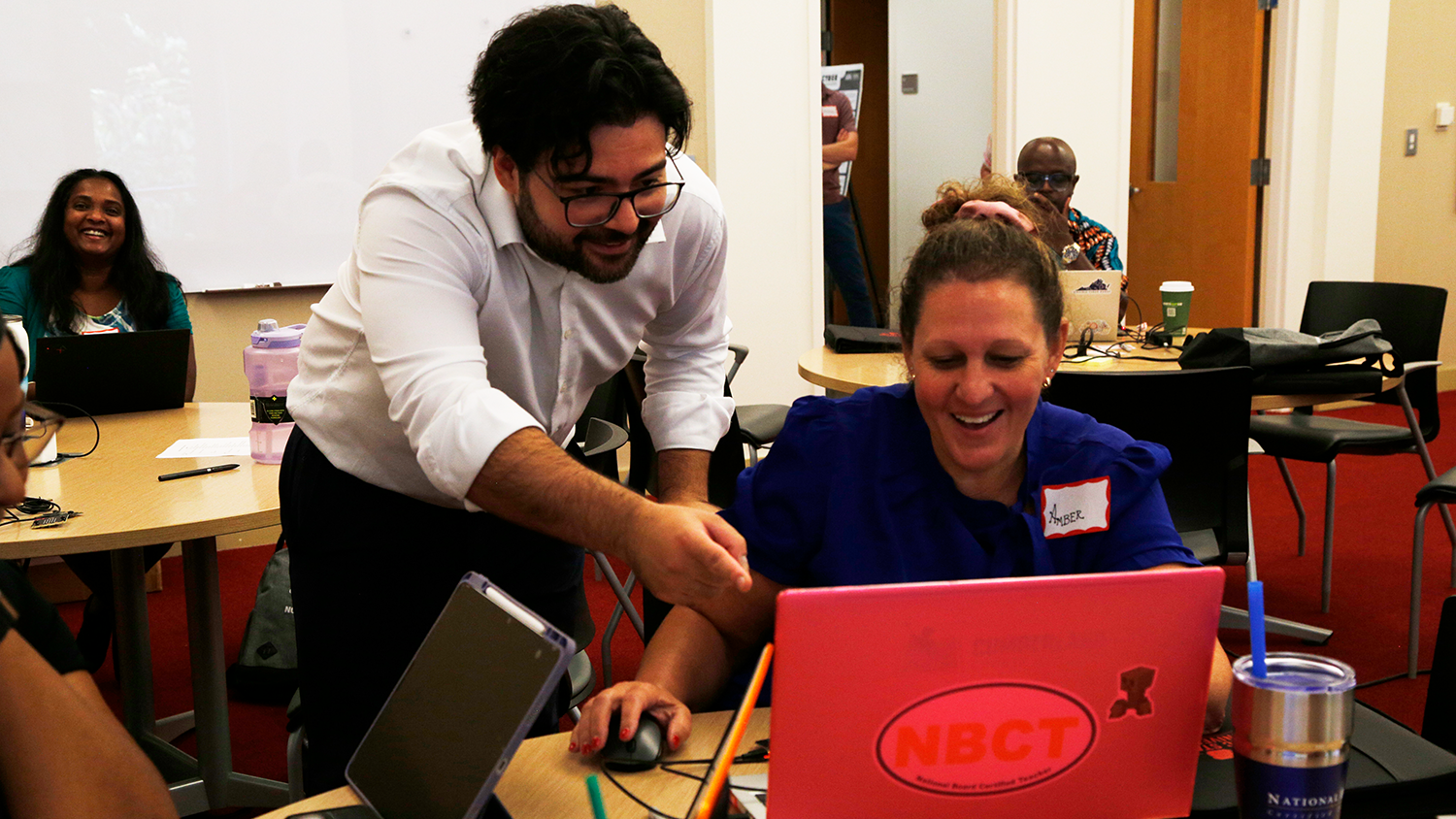The 3 E’s of Developing a Bioproducts and Bioenergy Pipeline: Education, Economics and Excitement

The College of Natural Resources and the College of Education are teaming up to prepare students in eastern North Carolina for future careers in the bioproducts and bioenergy industries.
Funded through a $2.75 million Agriculture and Food Research Initiative (AFRI) Competitive Grant, the “Preparing Diverse and Rural Students and Teachers to Meet the Challenges in the Bioproducts and Bioenergy Industry” program has five goals: (1) develop online college courses that teach interdisciplinary concepts and applications critical for industry growth and innovation; (2) cultivate the next wave of industry leaders by recruiting a diverse group of undergraduate students for a certificate program; (3) promote undergraduate career readiness through internships and co-ops in related industries, government and non-government organizations; (4) recruit rural high school science teachers for professional development through a certificate program and hands-on workshops; and (5) inspire underrepresented high school students to discover the bioproduct and bioenergy industries through high school teacher lessons and career fairs.
“This program will assist rural communities in North Carolina by helping create prosperity, so they become self-sustaining, repopulating and economically thriving,” said Dr. Richard Venditti, Ellis-Signe Olsen Professor of Forest Biomaterials and lead PI for the project. “These efforts will develop a regional sustainable bioproducts and biofuels industry that will create jobs, allow rural communities to thrive and decrease our dependence on foreign oil.”
E is for Economics
As of 2013, North Carolina had the seventh highest degree of bioproducts industry concentration in the country. Even though a majority of the industry is clustered in the eastern part of the state, the forest products industry directly supports more than 70,000 employees at more than 2,000 businesses in all 100 counties of North Carolina. Business continues to grow, contributing more than 13.6 billion to North Carolina’s gross domestic product annually, and is expected to add more than 5 million jobs nationwide in the coming years.
“By showing students the economic opportunities available to them in the booming bioproducts and bioenergy industries, we hope to motivate them to attain educational degrees and careers in the industry,” Venditti said. “Even though many students are simply unaware of these types of careers, the technological skills required in current manufacturing environments, like project management, database development and management, data analysis and mining, statistical process control, mathematics, business leadership and critical thinking are in high demand.”
This project will bridge the gap between available industry jobs and a viable workforce, between rural high schools and NC State University, and between poverty and the possibility of prosperity. By providing a better work force for the bioproducts and bioenergy industry, it will help solve key problems in the areas of bioenergy, forestry, rural communities and biotechnology. It will be a long-term investment and improvement in the sustainability of the US agriculture and forestry-based industries in our state.
E is for Education
Eastern North Carolina high schools traditionally serve low-income families, including 80 percent minority communities. A majority of the schools in the area are considered high-poverty, with 65 to 90 percent of students receiving free and reduced lunch. For these students, poverty is real and influences their potential for academic achievement.
“Schools are under duress,” said Dr. Margaret Blanchard, Associate Professor of Science Education and co-PI for the project. “Usually they feel the pressure to drill on content instead of providing opportunities for students to get excited about coming to school. However, we can provide STEM and science experiences without the pressure of standardized tests, so students can learn through experiencing it. To me, education is the way out of poverty.”
To bridge the industry and educational gaps with the most need, the majority of students and high school teachers recruited for this program will be from rural, high-poverty high schools and historically underserved institutions. The team has developed key partnerships with Historically Black Colleges and Universities (HBCUs), women’s colleges and community colleges. Initial partners include Meredith College, Saint Augustine’s University, Shaw University and Wake Technical Community College.
The four-year grant has the potential to impact nearly 2,000 students each year in North Carolina from partner institutions. The team hopes that rural students impacted by this project will accept jobs in a rural setting. This creates economic stability because students are growing up, living and working in the same area. By staying and investing in their local communities and economies, they are more inclined to commit to long term to jobs expected to grow in the bioproducts and bioenergy industries in rural areas.
“The ability to leverage the human resources of North Carolina with the needs of an emerging bioproducts and bioenergy industry make our state uniquely positioned for this project,” Venditti said. “North Carolina is an important part of the country and we are a great testbed for advancing the bioproducts industry. Here, people get good jobs and lead good lives.”
E is for Excitement
Excited about replacing petroleum-based products and energy with plant-based, renewable projects? The Sustainable Bioproducts and Bioenergy program is now accepting applications from high school teachers and undergraduate students. Visit go.ncsu.edu/sbbp to learn more about the program and to apply.
High school teachers will complete two online courses and two one-week professional development workshops that will help them create new lesson plans and coordinate annual bioproducts and bioenergy career nights at their high school.
Undergraduate students, preferably sophomores or juniors majoring in science or STEM related fields like biology, chemistry or physics, will complete one online science course per semester, for a total of 9 transferrable credit hours. They will also complete one paid internship arranged by the NC State College of Natural Resources with a company participating in an industry, government or research partnership.
The faculty contributing to the project include Richard Venditti, Hasan Jameel, Ronalds Gonzalez, Steve McKeand, Elizabeth Nichols, Steve Kelley, Sunkyu Park, Yuan Yao, Med Byrd and Lokendra Pal from the College of Natural Resources and Margaret Blanchard and Anona Smith Williams from the College of Education. More than seven graduate students are also participating in the project with faculty from both colleges, and Shana McAlexander is heading the development of the distance courses for the project.
This post was originally published in College of Natural Resources News.
- Categories:


